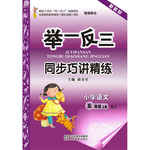题目内容
________ such heavy pollution already, it may now be too late to clean up the river.
- A.Having suffered
- B.Suffering
- C.To suffer
- D.Suffered
解析:
四个选项均为同一动词,因此在词义上并无大的差异。应该通过分析题干句意,来考虑动词的不同非谓语形式在表达意思上的差别,而后做出选择。本句想要表达的意思是“河流已经遭受如此严重的污染,现在要想清理也许太迟了”。后面句子的动作发生在前面动词suffer行为之后,因此,所设空中应该选用表示“已经完成”状态的-ing分词的完成式——Having suffered。

 举一反三同步巧讲精练系列答案
举一反三同步巧讲精练系列答案 口算与应用题卡系列答案
口算与应用题卡系列答案Uganda is a country in East Africa and,as in many such countries,a high percentage of the population,about 80 percent,are village-dwellers living in huts,which are often no bigger than a garage. The walls of the huts are made of mud,which is held together by reeds and sticks,and the roofs of the older ones are thatched(覆盖)with grass,although an increasing number of newer village houses have roofs made from corrugated(波纹形的)iron.
Several generations of the same family live together in the huts,which are usually divided into two sections by a curtain. The inner section,the one furthest from the open door of the hut,is where everyone sleeps and food is prepared and served in the outer part. If the family owns chickens or goats,they are kept in a small room attached to the main house.
Food is usually prepared on open fires although some people prefer to cook inside. However,this is quite dangerous and also means that the walls of the hut are stained by smoke and the atmosphere is acrid. The family sit in a circle on mats while they eat.
Newer village houses are almost always made of corrugated iron and are bigger,with one or two separate bedrooms and the kitchen in a smaller building beside the main house. But,old or new,the houses are not powered by electricity,and all homes are lit by paraffin(石蜡)candles called “tadobba”.
Nor is there any running water in the houses. Some villages have their own well,but in many cases,collecting water involves a long and arduous walk to a river or spring,carrying plastic containers or pots made of clay.
Children are the ones who have to fetch water,and they have to do this early in the morning before they go to school,or in the evening when they come home. They often have to climb high hills or walk through valleys with narrow paths through dense vegetation. It is no surprise that they grow up muscular and fit after such daily exercise,walking for several kilometres carrying such heavy weights.
【小题1】Most Ugandans live .
| A.with their whole family in large mud houses in the countryside |
| B.in towns in small houses made of mud and iron |
| C.in villages in small houses made of wet earth,grass and wood |
| D.With their parents and children as well as their chickens and goats |
| A.In the kitchen. |
| B.On the floor in the middle of the house. |
| C.On fires in front of the hut. |
| D.In a small room attached to the main house. |
| A.Both of them have roofs made of corrugated iron. |
| B.Neither of them have a garage or kitchen. |
| C.Neither of them have electricity,lights or running water. |
| D.Both of them have water inside but no electric light. |
| A.go to a well or a river and often carry it for a long distance |
| B.do a lot of work cooking and carrying water |
| C.collect water on the way home from school |
| D.get water out of their own well |
36. The entrance is _____ with such heavy stones as two or three big men can’t move.
|
A.put |
B.stopped |
C.blocked |
D.Closed |